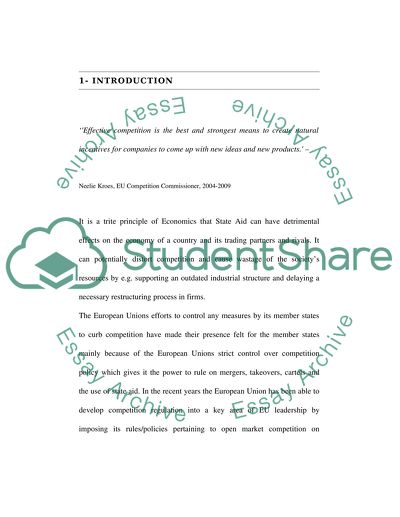Cite this document
(“European Competition Law Essay Example | Topics and Well Written Essays - 5500 words”, n.d.)
Retrieved from https://studentshare.org/law/1504914-european-competition-law
Retrieved from https://studentshare.org/law/1504914-european-competition-law
(European Competition Law Essay Example | Topics and Well Written Essays - 5500 Words)
https://studentshare.org/law/1504914-european-competition-law.
https://studentshare.org/law/1504914-european-competition-law.
“European Competition Law Essay Example | Topics and Well Written Essays - 5500 Words”, n.d. https://studentshare.org/law/1504914-european-competition-law.


